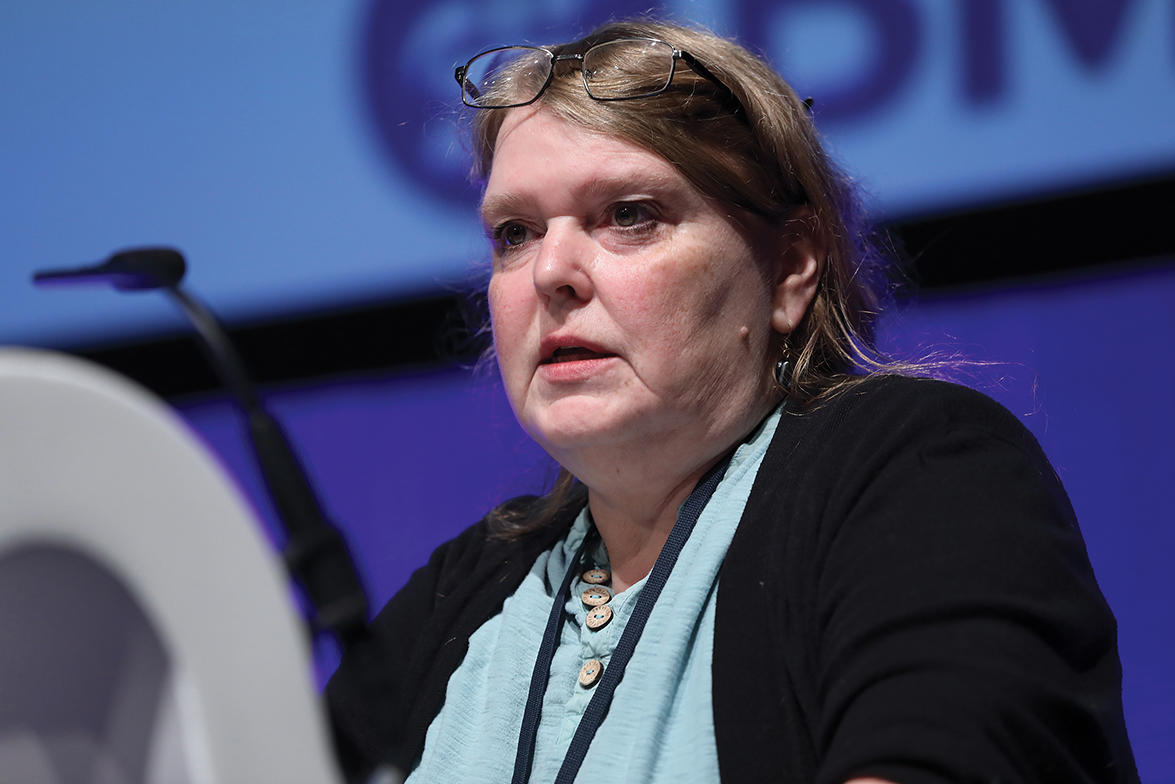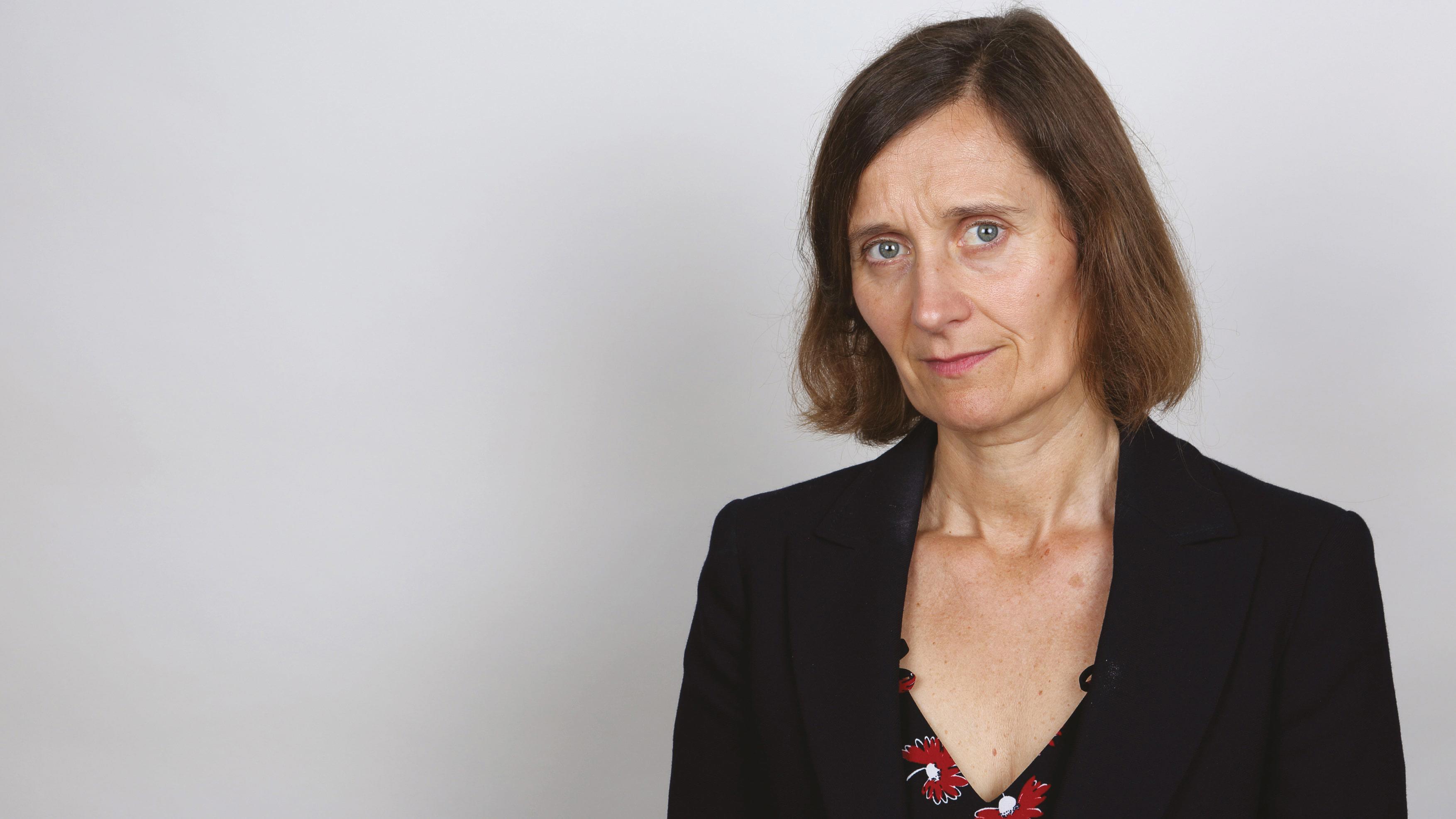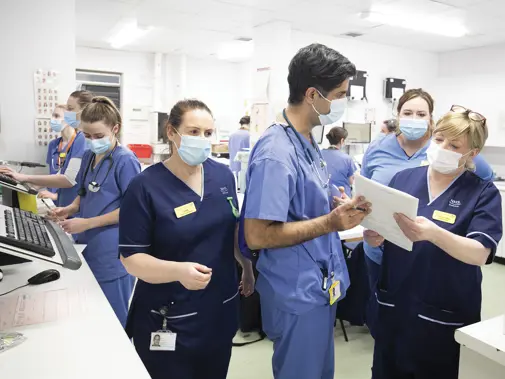It’s that uneasy sense of compromise, all the rationing and painful prioritising, the gnawing guilt that you’re not doing a ‘proper job’ despite your best efforts and long hours.
It’s being assigned three patients when you should have one, making urgent referrals that leave patients suspended in limbo, facing impossible ethical choices alone at 3am.
Increasingly, it’s being given a name: moral distress.
This disconnect between doctors’ core moral and professional values and the decisions and actions they are forced to take is nothing new.
For more than 10 years now, the lack of time, resources and support has been taking its toll. But COVID has exacerbated systemic pressures and weaknesses, says Helen Fidler, deputy chair of the BMA consultants committee.
‘What drives us to carry on working is the reward of getting the best outcome for a patient,’ says Dr Fidler. ‘The stress of the job, the onerous responsibility, is offset by this feeling that you’re helping. But if the feeling that you’re helping is taken away, you’re destroying the very kernel of why people go into medicine. Instead, we have a continual feeling that we’re letting our patients down.’
Sense of failure
What moral distress looks like is different for everyone, and different every day.
For a consultant gastroenterologist such as Dr Fidler, having to assess people on the phone owing to COVID restrictions can be deeply frustrating.
Hearing the distress of someone who doesn’t speak English and who is trying to explain symptoms in their own language is painful enough.
Suspecting a patient may have cancer and making a referral that you know may condemn them to an indefinite wait is ‘almost torturous’.
Over the years I’ve seen so many people impacted by a system that lacks basic humanityDr Freeman
‘At the end of the conversation, you just feel a sense of failure, and the patients are often distressed and crying on the phone,’ says Dr Fidler.
‘And what can you say? It’s just awful for them, and you can’t even be a safe haven for them. You’re apologising for something that’s outside your control and that’s demoralising.
‘From the moment you see a patient and make a plan, you have an inbuilt instinctive responsibility for them and for getting the best possible outcome for them, almost like a contract. There’s an emotional bond too because we’re human. That’s what drives us to work all those unpaid hours. When you can’t meet that responsibility, it’s upsetting – and really damaging.’
Powerlessness
These are problems that Southampton GP Alex Freeman feels acutely too.
‘We are having to manage so much more in the community so we’re seeing people that we know we can’t help,’ says Dr Freeman, a BMA council member.
‘We refer when we’re running out of options ... and then there’s this long wait. A lot of the time all you can do is listen.’
That sense of powerlessness is compounded by many other factors. Dr Freeman mentions patients’ distress, unfair criticism of GPs in the media, the guilt felt by doctors having to shield because of their own medical conditions, even the moral outrage provoked by seeing people in public choosing not to wear a mask.
COVID itself has put additional strains on the doctor-patient relationship, particularly in the absence of proper personal protective equipment.
‘It’s a horrible dilemma: am I putting myself at risk by bringing a patient in or am I putting that patient at risk by not seeing them in person?’ says Dr Freeman.
‘All doctors have this huge moral imperative to do their best for their patients and if that care is in any way compromised, either because of the system or the risks, you feel like you’re not good enough.’
Struggling alone
Not long before the pandemic’s second wave engulfed ICUs (intensive care units), Southampton consultant in intensive care medicine Chris Danbury gave a vivid analysis of the ethical dilemmas regularly facing critical care consultants such as him.
He was speaking at the BMA online conference, ‘Justice, fairness and medical ethics seen through the lens of COVID-19’.
He described in detail the complex considerations involved in deciding which patients to admit to ICUs operating at full capacity – and the loneliness of that process.
 FREEMAN: ‘You feel like you’re not good enough’
FREEMAN: ‘You feel like you’re not good enough’
‘At 3 o’clock in the morning, who do I have to help me make my decision?’ asked Dr Danbury. ‘I will have a site manager and I will have probably a member of the executive board who is on call and unused to being woken at 3am to help with decisions. I don’t have an ethics committee.’
Recognising the pressure on doctors shouldering the ‘moral burden’ of such high-stakes decisions, the BMA devised an ‘Ethics guidance note’ on prioritisation in response to COVID. Government attempts last year to provide national guidance or a ‘triage tool’ to ensure consistent decision-making ended in failure.
Isolation, whether perceived or actual, is dangerous, says Dr Freeman. The risk is that doctors internalise these pressures and become mired in self-criticism. That’s when moral distress can harden into moral injury, which can lead to burnout and psychological trauma.
Losing talent
Mounting anecdotal evidence, including BMA COVID tracker surveys, links these factors to high rates of early retirement, the crisis of staff retention – and worse.
Dr Freeman chairs the Louise Tebboth Foundation, a charity supporting doctors’ wellbeing and the families of doctors who have died by suicide.
It’s important to be clear on causality, she says: the system is at fault, not the individual.
‘Over the years I’ve seen so many people impacted by a system that lacks basic humanity,’ says Dr Freeman.
‘But somehow, things tend to be turned around to imply there’s something wrong with them, that they somehow lack resilience. The only thing wrong with them is that they happened to be human.
‘There’s been times when my entire focus has been: Can I get through today? People’s first priority has to be themselves, even though that cuts across everything that they stand for.’
Sharing, not shaming
 FIDLER: End culture of blame
FIDLER: End culture of blame
Addressing systemic failures is a longer work that must extend far beyond the pandemic.
Dr Fidler’s wish-list is extensive: an end to the culture of blame, the threat of legal action, honesty on the part of politicians and the Department of Health about the real pressures upon the NHS, to manage patients’ expectations.
Then there’s proper funding for an NHS Long-Term Plan ‘backing the workforce’, money directed into public health not private-sector providers, health policy informed by frontline workers…
But there are simpler, smaller, older ideas too: sharing forums such as Schwartz Rounds (and ringfenced, prioritised time to ensure doctors can attend) or communal spaces where they can rest, offload and share.
Naming the problem is an important place to start, says Dr Fidler.
‘When I’ve spoken of moral injury recently, I’ve seen people start to cry. That disconnect we’re all feeling, the responsibility you put on yourself but can’t meet, it’s not talked about. Nobody dare say anything about it. It’s really important to name this awful sense of crippling guilt, and recognise that other people feel the same way.’
The BMA is surveying doctors on moral injury. The data gathered will be used to inform its next submission to the Review Body on Doctors’ and Dentists’ Remuneration and its work on issues such as NHS funding, workforce retention and regulations

